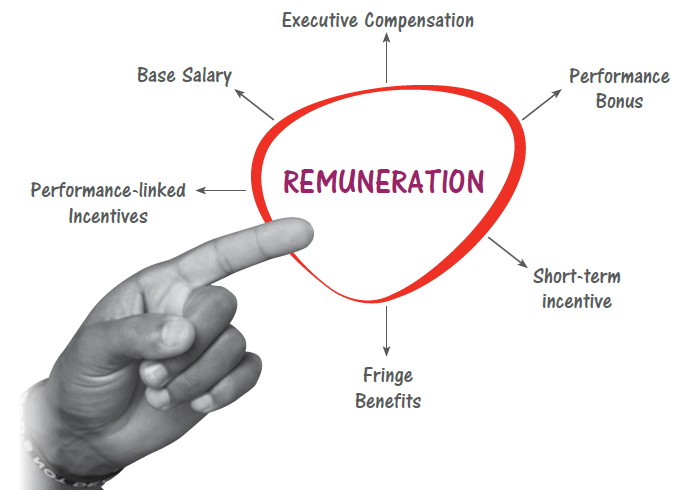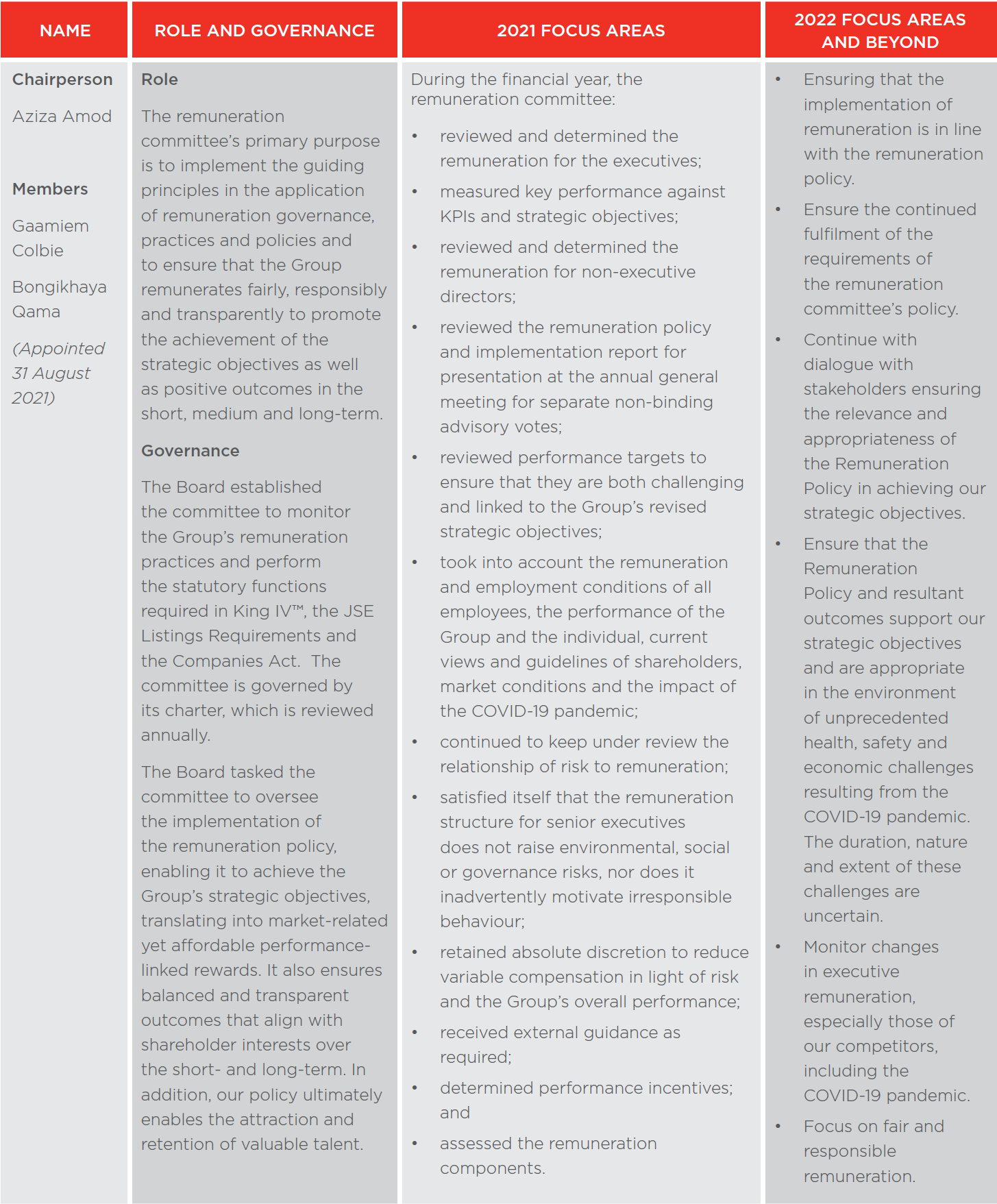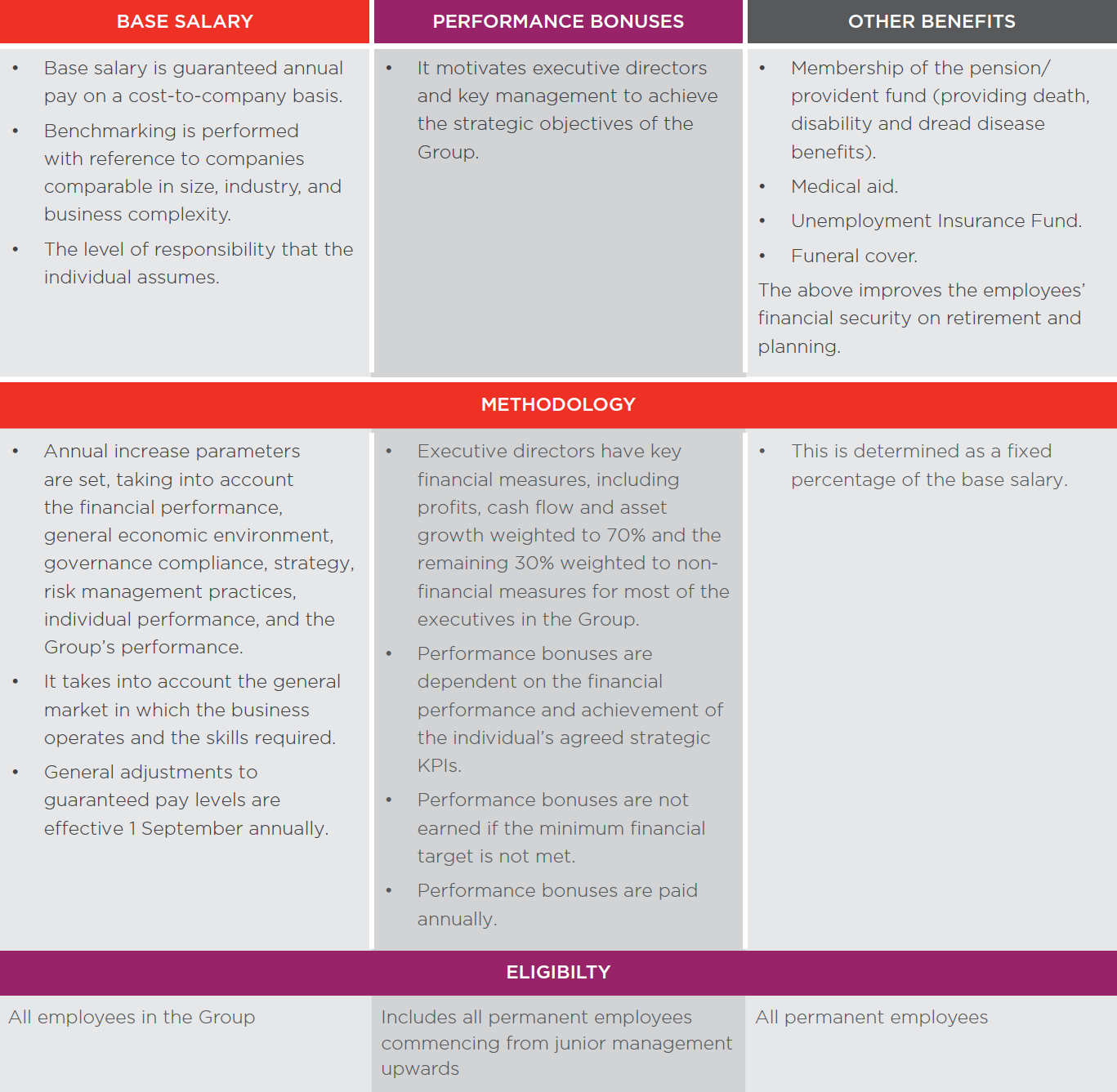LETTER FROM THE CHAIRPERSON OF THE REMUNERATION COMMITTEE
AZIZA AMOD
Dear Shareholders 
This remuneration report sets out the Group’s remuneration philosophy and policy, emphasising non-executive and executive directors. It also describes how the remuneration policy has been implemented and discloses payments made to non-executive and executive directors during the year as required by the provisions of King IV™. This report will be considered and voted upon at the forthcoming AGM of shareholders on behalf of the remuneration committee.
The remuneration committee consists of one independent non-executive director and two non-executive directors who have the prerequisite skills. In addition, the CEO and consultant attend the committee meetings by invitation.
In the face of the deteriorating economic environment and slower growth due to the COVID-19 pandemic, the Group’s remuneration objectives for motivating and retaining employees pre-COVID-19 continued to be severely compromised. As a result, we shifted our objectives to financial and short-term operational resilience while championing the King IV™ Code on Corporate Governance and in line with our commitment to fair and responsible remuneration.
In this regard, we continuously reviewed our remuneration practices during the year to ensure that they remain relevant and aligned to our revised strategy. We also ensured that any resultant changes did not have a material effect on our human capital. Remuneration and reward systems continue to remain sensitive matters, especially in the socio-political environment. The committee will continue to review and adapt to changes in market conditions to ensure that our policy and principles remain appropriately aligned with our overall business strategy.
We are committed to maintaining strong relationships with our shareholders, built on trust and a clear understanding of the quantum, rationale and drivers of executive remuneration and that our remuneration policy and practices have been
implemented.






